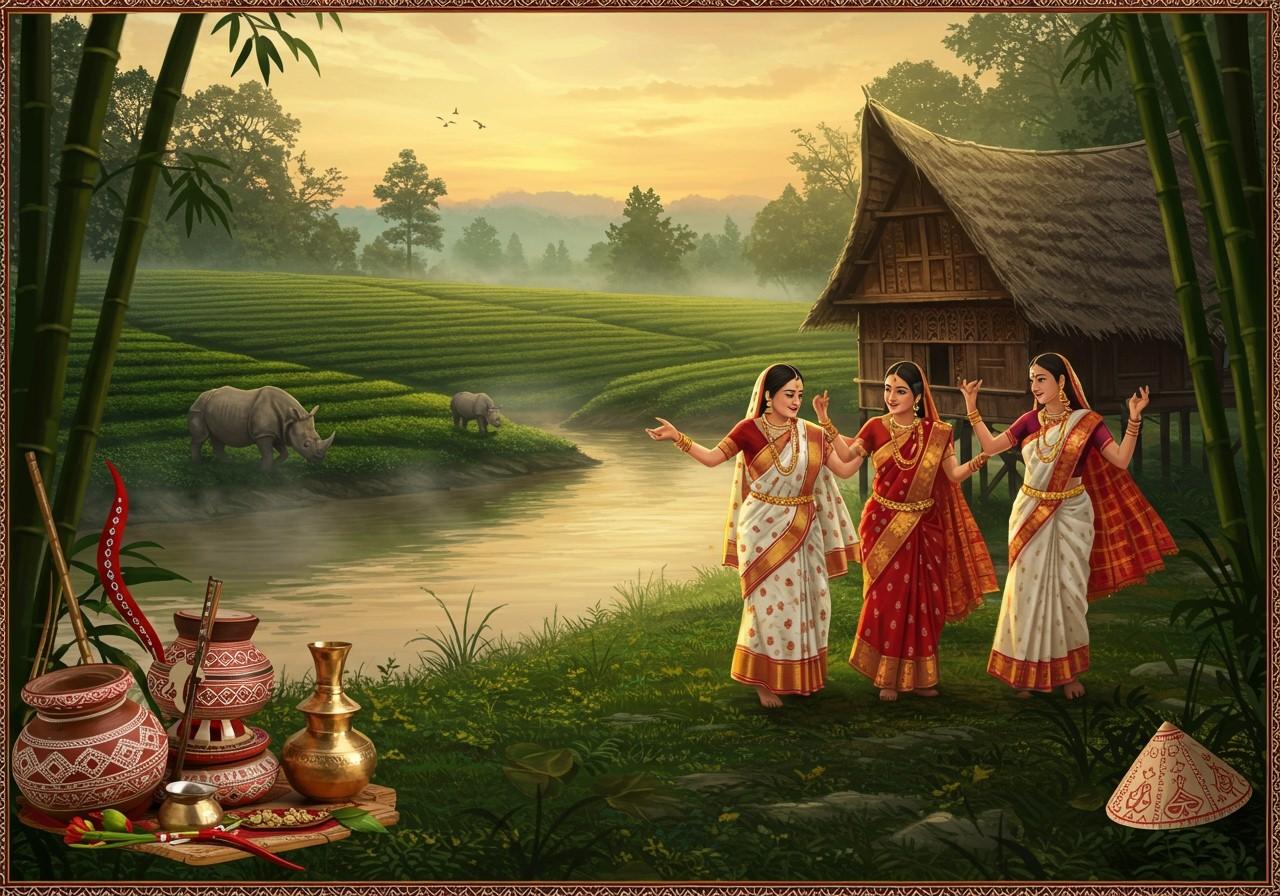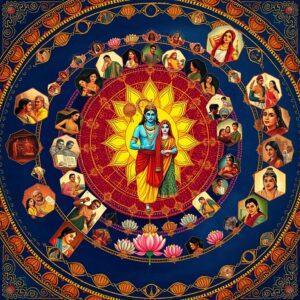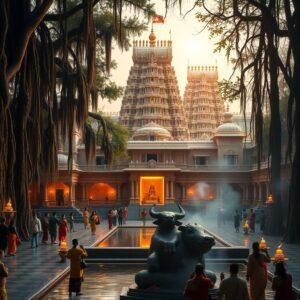
Assam, nestled in northeastern India, is renowned for its vibrant cultural heritage, shaped by Indo-Burmese, Mongolian, and Aryan influences. This diverse state is home to various tribes, each contributing unique traditions, lifestyles, and clothing to the rich tapestry of Assamese culture. The official language, Assamese (also known as Asomiya), further strengthens the state’s unique identity.
Assam and Its People
Assam’s population is a beautiful mosaic of ethnic groups, including indigenous tribes like the Bodos, Mishings, and Karbis, each with distinct cultural practices. Assamese Muslims also enrich the region’s heritage, adding their own customs and traditions to the mix. Major festivals, particularly Bihu, bring communities together in celebration and strengthen the social fabric of the state.
Agriculture is deeply intertwined with Assamese life. The world-renowned tea plantations not only contribute significantly to the economy but also shape daily routines and cultural practices. Traditional crafts, such as handloom weaving and pottery, are passed down through generations, preserving artistic skills and cultural heritage. Family and community ties are strong, influencing social interactions and reinforcing a sense of belonging.
Assam’s Traditional Attire
Traditional clothing in Assam is more than just garments; it’s an expression of cultural identity. Women grace themselves in the elegant Mekhela Chador, a two-piece ensemble showcasing intricate weaving techniques. The Mekhela, a cylindrical skirt, and the Chador, a draped cloth worn over the shoulder, create a graceful silhouette. Men proudly don the Dhoti-Gamosa, symbolizing cultural pride and tradition. The Dhoti, wrapped around the waist, and the Gamosa, a versatile cloth used as a towel or scarf, are integral to Assamese attire.
Assam’s unique silk varieties—Muga, Eri, and Pat—add a touch of luxury and elegance to traditional attire. These silks, known for their unique textures and sheen, are highly valued and often incorporated into ceremonial garments. Traditional jewelry, including the Japi (conical hat), Gamkharu (bracelets), and Lokaparo (earrings), complements the attire, enhancing its cultural richness. These accessories, often crafted with intricate details, reflect the artistry and craftsmanship of Assamese artisans.
Languages of Assam
Assamese, the official language, boasts a rich literary history and serves as a unifying factor for the diverse communities. Alongside Assamese, other languages like Bodo, Bengali, and Hindi contribute to the linguistic landscape. Indigenous tribes maintain their own languages, preserving their cultural heritage and distinct identities. English, used in education and administration, has also influenced the linguistic environment.
Cultural Festivals and Celebrations
Assam’s festivals are vibrant expressions of its cultural heritage. Bihu, the most prominent festival, comes in three forms: Rongali Bihu (celebrating the Assamese New Year), Bhogali Bihu (marking the harvest season’s end), and Kongali Bihu (observed during the lean period). Each form of Bihu carries unique customs and rituals, reflecting the agricultural cycle and community life. Other notable festivals like Ambubachi Mela and Jonbeel Mela showcase Assam’s diverse spiritual beliefs and unique traditions.
Traditional music and dance, especially the energetic Bihu dance, are integral to these celebrations. Festivals are a time for communal harmony, cultural exchange, and the passing down of traditions from one generation to the next. Unique rituals performed during festivals reflect the deep-rooted spiritual beliefs of the Assamese people.
How Poojn Helps Preserve Assam’s Cultural Heritage
Poojn.in takes pride in offering authentic Assamese cultural items, connecting you to the heart of this rich heritage. Our collection includes the traditional Gamusa (Gamcha), a symbol of Assamese identity and customs. Shop for authentic Gamusa and other Assamese items at Poojn.in.
- 100% pure cotton material: Ensuring quality and comfort.
- Traditional red and white patterns: Representing auspiciousness and cultural significance.
- Hand-woven by local artisans: Supporting traditional craftsmanship and empowering local communities.
- Multiple sizes for different uses: Catering to various needs and customs.
We also provide essential items for Assamese customs and rituals, ensuring authenticity and quality:
- Gamusa for ceremonial offerings: An integral part of religious practices.
- Traditional attire accessories: Completing the traditional look with authentic pieces.
- Ritual items used in Assamese ceremonies: Providing access to essential items for cultural practices.
- Authentic materials for cultural practices: Maintaining the integrity and sanctity of traditions.
Conclusion
Assam’s rich culture is a tapestry woven with diverse traditions, vibrant attire, and a multitude of languages. The people of Assam, with their unique customs and festivals, embody a heritage that is both profound and inspiring. From the intricate artistry of the Mekhela Chador to the energetic Bihu dance, every aspect of Assamese culture tells a story of pride, unity, and a deep connection to the land.
Preserving and promoting these traditions while embracing modern influences is vital for ensuring that Assam’s cultural heritage continues to flourish. Exploring Assam’s cultural offerings is a journey of discovery, connecting you to a heritage that celebrates its past and embraces its future.


